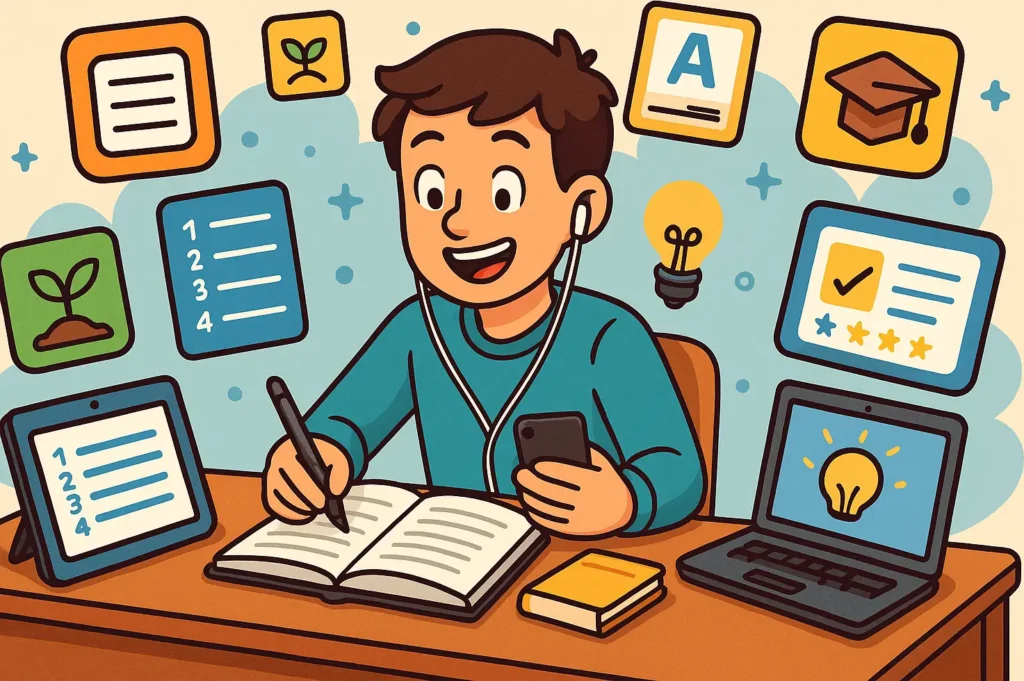You’ve probably downloaded study apps before and then deleted them a week later when they didn’t stick. So what actually works? Real students shared the apps that genuinely helped them focus better, learn faster, and stay organized without turning into another distraction. These aren’t just the most downloaded—they’re the most used and most loved by people who actually care about studying smarter.
1. Notion: The All-in-One Organizer for People Who Hate Chaos
“I started using Notion for class notes, assignment tracking, and even my reading list. It saved me,” one student said. Notion is flexible enough to be whatever you need: a study dashboard, a planner, or a digital binder. If you like structure with aesthetic vibes, this is it.
Best for: Keeping everything in one place without being overwhelmed.
2. Anki: The Flashcard App That Actually Makes You Remember Stuff
“Anki literally saved me in anatomy. Spaced repetition works,” someone wrote. It’s not cute or fancy, but it’s unbeatable for memorization. The algorithm shows you cards just before you’re about to forget them, which helps long-term retention without wasting time.
Best for: Languages, exams, definitions, or anything that requires memorization.
3. Forest: The Focus Timer That Guilt-Trips You Into Studying
“It helps me not touch my phone, which is half the battle,” said one student. Forest uses the Pomodoro technique: you study in short bursts, and a virtual tree grows as you stay focused. Close the app? Tree dies. Weirdly motivating.
Best for: Beating phone addiction while studying.
4. Google Calendar + Tasks: Boring but Elite
“I use Google Calendar for everything: deadlines, class times, breaks. It helps me plan my week in 10 minutes,” someone shared. Combined with Tasks or Google Keep, it’s a simple system that just works.
Best for: Time-blocking and staying on top of assignments.
5. GoodNotes (or OneNote): Digital Notes That Don’t Suck
If you’re using an iPad or tablet, these apps are student favorites. “I can write handwritten notes, organize them by subject, and add PDF slides,” a student wrote. Bonus: you won’t lose your notes in a mountain of paper.
Best for: Visual learners who like handwriting but want digital convenience.
6. Grammarly: Because Bad Grammar Is Distracting
“Grammarly caught so many small mistakes I missed,” said a student. Whether you’re writing essays, emails, or lab reports, it’s a solid second pair of eyes that helps you sound like you know what you’re doing.
Best for: Writing cleanly without overthinking sentence structure.
7. Quizlet: Fast, Easy Flashcards That Are Actually Kind of Fun
“I used Quizlet for vocab and formulas. The matching game helped me learn faster,” someone said. Quizlet’s simple interface and pre-made sets make it a fast go-to, especially for quick review.
Best for: Last-minute cramming and casual study sessions.
Final Thoughts
The right app won’t do the work for you, but it can make studying smoother, faster, and way less painful. Pick one or two that match how you learn and build a system around them. No app is perfect, but the one that helps you show up consistently? That’s the one that works.


